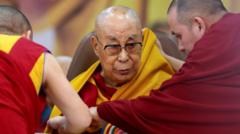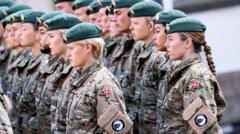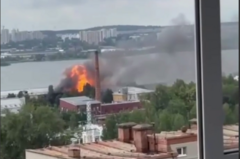Ramzan Kadyrov's health has raised urgent questions about his succession, particularly as he grooms his teenage son to take over amid a backdrop of strict control and possible violence in Chechnya.
Rumors of Illness Cloud Future Leadership in Chechnya

Rumors of Illness Cloud Future Leadership in Chechnya
With health concerns surrounding Chechen leader Ramzan Kadyrov, speculation grows over who will succeed him in the volatile region.
When news reports surfaced about Ramzan Kadyrov's health complications, the implications for Chechnya became increasingly significant. As the long-standing ally of Russian President Vladimir Putin, Kadyrov has ruled the region with an iron grip for over two decades, allowing little room for dissent or independence movements. His potential departure raises a troubling question: who will maintain his authority in such a turbulent part of southern Russia?
At the age of 48, Kadyrov is rumored to be seriously ill, prompting discussions about his possible successors. Most notably, he has been preparing his 17-year-old son to take the reins, a move that presents legal obstacles due to the age requirement for regional leaders in Russia. Other candidates for leadership include figures with controversial backgrounds, including individuals associated with violent crackdowns on LGBTQ+ communities and those who have fought in Ukraine.
Kadyrov has cultivated a unique position within the Russian political landscape, enjoying privileges that surpass other regional leaders. He leads what can be regarded as his own militia, imposing strict interpretations of Islamic law that conflict with Russian legislation. Kadyrov's foreign engagements have also diverged from Kremlin lines, with him establishing connections with Middle Eastern powers.
Following Russia's invasion of Ukraine, Kadyrov's regime stood apart from others, with Chechnya not facing mandatory conscription during the conflict. However, reports indicate that some Chechens were dispatched to the frontlines as a punitive measure, raising concerns about the methods the administration employs to maintain control and compliance.
The prospect of a successor capable of preserving Kadyrov's level of dominance is uncertain, leaving the region in a precarious position as it anticipates potential leadership shifts.
At the age of 48, Kadyrov is rumored to be seriously ill, prompting discussions about his possible successors. Most notably, he has been preparing his 17-year-old son to take the reins, a move that presents legal obstacles due to the age requirement for regional leaders in Russia. Other candidates for leadership include figures with controversial backgrounds, including individuals associated with violent crackdowns on LGBTQ+ communities and those who have fought in Ukraine.
Kadyrov has cultivated a unique position within the Russian political landscape, enjoying privileges that surpass other regional leaders. He leads what can be regarded as his own militia, imposing strict interpretations of Islamic law that conflict with Russian legislation. Kadyrov's foreign engagements have also diverged from Kremlin lines, with him establishing connections with Middle Eastern powers.
Following Russia's invasion of Ukraine, Kadyrov's regime stood apart from others, with Chechnya not facing mandatory conscription during the conflict. However, reports indicate that some Chechens were dispatched to the frontlines as a punitive measure, raising concerns about the methods the administration employs to maintain control and compliance.
The prospect of a successor capable of preserving Kadyrov's level of dominance is uncertain, leaving the region in a precarious position as it anticipates potential leadership shifts.




















